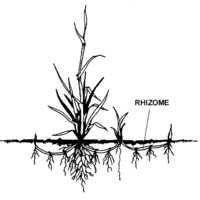
Chris Roche
I am the Director of the Centre for Human Security and Social Change
less
Related Authors
Mustafa Ozbilgin
Brunel University
Muqtedar Khan
University of Delaware
Josiah Heyman
University of Texas at El Paso (UTEP)
George K. # Zarifis
Aristotle University of Thessaloniki
David Seamon
Kansas State University
Remo Caponi
University of Cologne
Armando Marques-Guedes
UNL - New University of Lisbon
Martin O'Neill
University of York
Rachel E Smith
University of Aberdeen
Gary Feinman
Field Museum
InterestsView All (12)










Uploads
Papers by Chris Roche
complexity as the multiple constituent aspects within a system, while others take a more sociological approach, understanding interactions between beliefs, ideas and systems as mechanisms of change. This article adopts an exploratory approach to examine complexity thinking in the relational, recursive interactions between context and project design, implementation and evaluation. In doing so, common terms will be used to demonstrate the nature of shared aspects of complexity across apparently different projects
X how individual and collective leadership support might be combined more strategically;
X how programming might focus on shifts in the wider enabling environment in order to support the emergence of developmental leadership;
X what mix of support might be required to augment the multiple resources that leaders can develop and strategically deploy in different contexts, and for different groups or issues;
X to explore how leadership support might need to differ when supporting prototypical, as opposed to typical, leaders;
X what leadership support can learn from the political leadership of women’s organisation, coalitions and Disabled People’s Organisations as well as intersectional initiatives, particularly regarding non-elite leadership pathways, and how multi-level, cross-sectoral leadership functions and is best supported.
X an extension of the Gender and Politics in practice research to explore how successful programs have navigated and adapted business practices, HR policies, contract management and MEL processes to effectively support programs seeking to promote developmental leadership.
X the strategy and practice of leadership in development agencies, and the degree to which this enhances their effectiveness to support developmental leadership.
Program’s (DLP) research into politics, gender and coalitions. Through an exploration of these studies, this paper interrogates how the nature of a coalition’s formation, purpose, leadership and ownership drive the way in which that coalition functions, and sheds insights into how better to support the work of such coalitions. In particular, this paper raises important questions as to if, and how, external actors and donors can support local processes which challenge gender norms and engage in contentious politics in smart ways
It highlights four key factors influencing the formation and functioning of the coalitions: formative events; shared purpose; forms of leadership; and the nature of ownership.
One of the lessons that emerges is the importance of safe spaces in which coalition members and others can discuss and reframe attitudes and beliefs, often by sharing personal stories.
complexity as the multiple constituent aspects within a system, while others take a more sociological approach, understanding interactions between beliefs, ideas and systems as mechanisms of change. This article adopts an exploratory approach to examine complexity thinking in the relational, recursive interactions between context and project design, implementation and evaluation. In doing so, common terms will be used to demonstrate the nature of shared aspects of complexity across apparently different projects
X how individual and collective leadership support might be combined more strategically;
X how programming might focus on shifts in the wider enabling environment in order to support the emergence of developmental leadership;
X what mix of support might be required to augment the multiple resources that leaders can develop and strategically deploy in different contexts, and for different groups or issues;
X to explore how leadership support might need to differ when supporting prototypical, as opposed to typical, leaders;
X what leadership support can learn from the political leadership of women’s organisation, coalitions and Disabled People’s Organisations as well as intersectional initiatives, particularly regarding non-elite leadership pathways, and how multi-level, cross-sectoral leadership functions and is best supported.
X an extension of the Gender and Politics in practice research to explore how successful programs have navigated and adapted business practices, HR policies, contract management and MEL processes to effectively support programs seeking to promote developmental leadership.
X the strategy and practice of leadership in development agencies, and the degree to which this enhances their effectiveness to support developmental leadership.
Program’s (DLP) research into politics, gender and coalitions. Through an exploration of these studies, this paper interrogates how the nature of a coalition’s formation, purpose, leadership and ownership drive the way in which that coalition functions, and sheds insights into how better to support the work of such coalitions. In particular, this paper raises important questions as to if, and how, external actors and donors can support local processes which challenge gender norms and engage in contentious politics in smart ways
It highlights four key factors influencing the formation and functioning of the coalitions: formative events; shared purpose; forms of leadership; and the nature of ownership.
One of the lessons that emerges is the importance of safe spaces in which coalition members and others can discuss and reframe attitudes and beliefs, often by sharing personal stories.